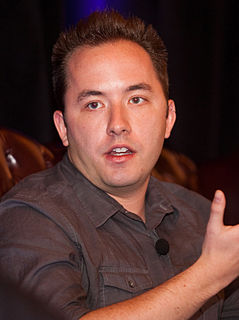A Quote by Price Pritchett
You can’t bake a cake without getting the kitchen messy. Halfway through surgery it looks like there’s been a murder in the operating room. If you send a rocket to the moon, about ninety percent of the time it’s off course—it ‘fails’ its way to the moon by continually making mistakes and correcting them.
Related Quotes
What was supposed to be so special about a full moon? It was only a big circle of light. And the dark of the moon was only darkness. But halfway between the two, when the moon was between the worlds of light and dark, when even the moon lived on the edge...maybe then a witch could believe in the moon.
To send humans back to the moon would not be advancing. It would be more than 50 years after the first moon landing when we got there, and we'd probably be welcomed by the Chinese. But we should return to the moon without astronauts and build, with robots, an international lunar base, so that we know how to build a base on Mars robotically.
So much goes into doing a transplant operation. All the way from preparing the patient, to procuring the donor. It's like being an astronaut. The astronaut gets all the credit, he gets the trip to the moon, but he had nothing to do with the creation of the rocket, or navigating the ship. He's the privileged one who gets to drive to the moon. I feel that way in some of these more difficult operations, like the heart transplant.
When I finally had the chance to make my childhood dream a reality - as a co-founder and chairman of Moon Express - my goal was to broaden participation in lunar exploration, and connect the common person to its results. We plan to send robotic rovers - not humans - to the Moon to search for precious metals and rare minerals on the Moon's surface.
Ninety to ninety-five percent of people will withdraw to the comfort zone when what they try doesn't work. Only that small percentage, 5 or 10 percent, will continually improve themselves; they will continually push themselves out into the zone of discomfort, and these are always the highest performers in every field.
There was just one moon. That familiar, yellow, solitary moon. The same moon that silently floated over fields of pampas grass, the moon that rose--a gleaming, round saucer--over the calm surface of lakes, that tranquilly beamed down on the rooftops of fast-asleep houses. The same moon that brought the high tide to shore, that softly shone on the fur of animals and enveloped and protected travelers at night. The moon that, as a crescent, shaved slivers from the soul--or, as a new moon, silently bathed the earth in its own loneliness. THAT moon.

































